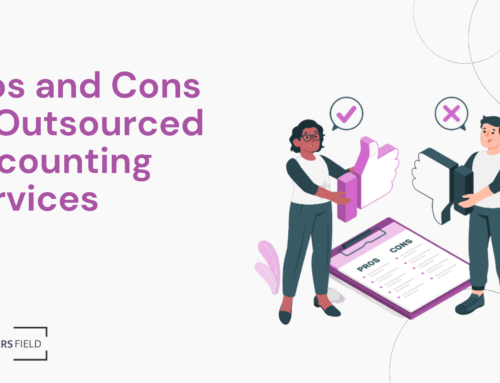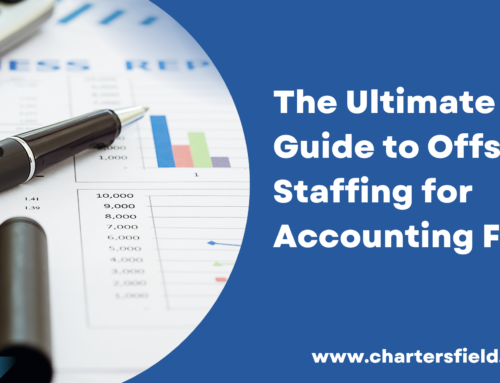What Is offshore accounting?
Offshore accounting, in a general sense, refers to the practice of managing financial and accounting activities in a foreign country or offshore jurisdiction, often for the purpose of taking advantage of specific financial, tax, or regulatory benefits. It involves handling financial transactions, assets, or accounts in a location different from one’s home country. Here are some key aspects of offshore accounting:
1. Tax Planning:
Offshore accounting is often used to minimize tax liability. Many offshore jurisdictions offer favorable tax rates, exemptions, or incentives that can reduce the tax burden on income, profits, or assets.
2. Asset Protection:
Some individuals and businesses use offshore accounting to protect their assets from legal claims, creditors, or other potential threats. Offshore jurisdictions with strong asset protection laws can make it more difficult for external parties to access these assets.
3. Privacy and Confidentiality:
Offshore jurisdictions often have strict banking secrecy laws, which can provide a high level of privacy and confidentiality for account holders. This can be beneficial for those looking to maintain the confidentiality of their financial affairs.
4. International Business Operations:
Multinational corporations use offshore accounting to streamline their international financial operations, manage currency risks, and optimize tax structures in a globally efficient manner.
5. Diversification:
Offshore accounts can allow individuals and businesses to diversify their investments across different currencies, markets, or asset classes to reduce risk.
Must Read: Offshore Tax Preparation: Step-by-Step Process to Hire an Offshore Tax Preparer from ChartersField
6. Estate Planning:
Offshore accounting can be part of an estate planning strategy to facilitate the transfer of wealth to heirs or beneficiaries while minimizing estate taxes.
7. Currency Management:
Offshore accounts can be used to manage and hold different currencies, which can be valuable for businesses engaged in international trade.
8. Reduced Regulatory Burden:
Some offshore jurisdictions have more relaxed regulatory requirements, which can reduce the administrative burden and compliance costs for businesses.
It’s important to note that while legitimate reasons exist for engaging in offshore accounting, there are also concerns related to illegal activities such as tax evasion and money laundering. Many countries have increased their regulatory oversight of offshore financial activities and implemented measures to ensure transparency and compliance.
Must Read Virtual Tax Preparation Services vs. In-House Solutions: Which One Is Best
What are the benefits of offshoring accounting services to ChartersField?
ChartersField is a company that provides offshore accounting services. Offshoring accounting services to ChartersField or similar firms can offer several benefits to businesses. Here are some potential advantages:
1. Cost Savings:
Offshoring accounting services to ChartersField can often result in significant cost savings. Labor costs in offshore locations, such as India or the Philippines, are generally lower than in many Western countries. This means you can access highly skilled accountants and financial professionals at a fraction of the cost of hiring locally.
2. Access to Specialized Expertise:
ChartersField typically employs a team of experienced professionals who are well-versed in various accounting and financial services. By offshoring, you can tap into their specialized expertise without the need to hire, train, or manage an in-house team.
3. Scalability:
ChartersField can provide a scalable solution for your accounting needs. Whether your business is small or large, they can adapt to your requirements and handle fluctuating workloads effectively.
4. Focus on Core Business Activities:
Outsourcing accounting functions to ChartersField allows your in-house team to concentrate on core business activities. This can lead to increased productivity and better use of your resources.
5. Time Zone Differences:
Depending on your location and ChartersField’s offshore operations, there may be time zone differences. This can lead to extended work hours, with accountants working on your tasks even when your local team is off-duty. It can enhance efficiency and turnaround times.
6. Access to Advanced Technology:
Companies like ChartersField often invest in state-of-the-art accounting software and technology. By offshoring, you can leverage these tools without the need for your own substantial investments.
7. Reduced Administrative Burden:
Managing an in-house accounting team comes with administrative responsibilities. By offshoring, you can reduce the administrative burden associated with recruitment, HR, and team management.
8. Compliance and Regulatory Knowledge:
ChartersField typically has a strong understanding of local and international financial regulations and can ensure compliance with tax laws and reporting requirements. This can be particularly beneficial if your business operates across borders.
9. Risk Mitigation:
ChartersField’s offshore operations often implement robust security measures, which can help mitigate risks related to data security and financial fraud.
10. Flexibility:
Offshoring allows you to select the specific services you need and scale up or down based on your evolving business requirements.
It’s important to note that the success of offshoring accounting services to ChartersField or any other provider depends on selecting the right partner and effectively managing the outsourcing relationship. Due diligence in choosing a reliable service provider, clear communication, and collaboration are essential for a successful offshoring experience. Additionally, ensure that the chosen provider aligns with your business’s specific needs and values.



